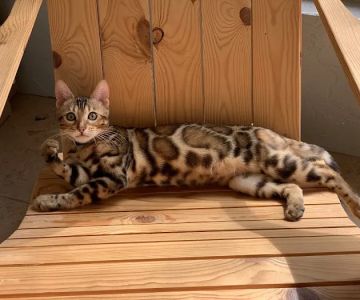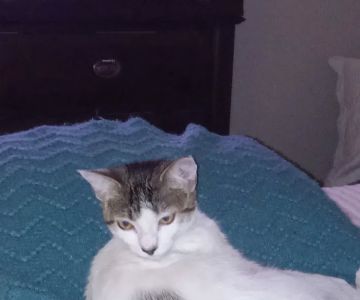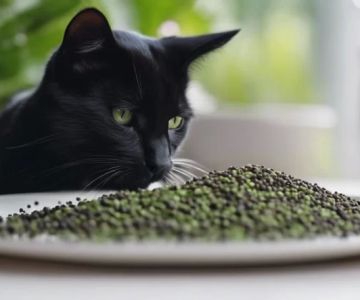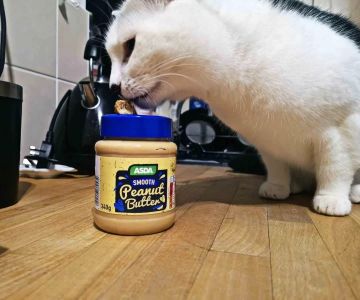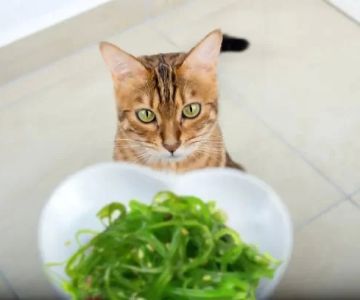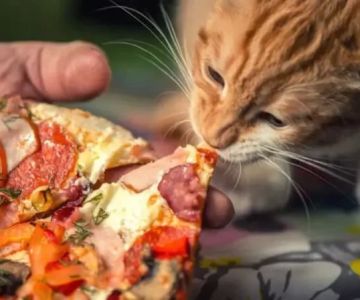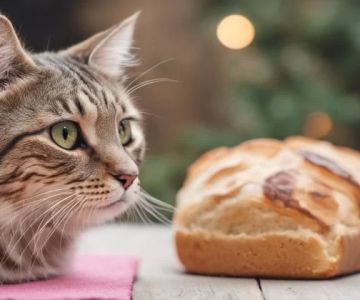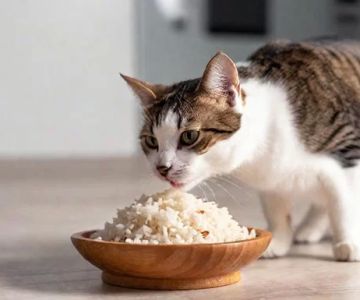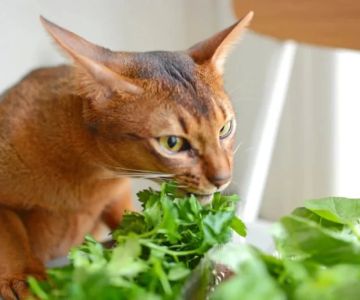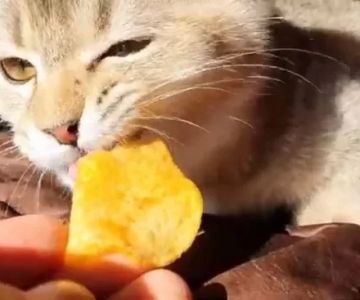Can Cats Eat Cauliflower? Exploring Safe Foods for Your Feline Friend
As a cat owner, you may have wondered if it's safe to share some of your favorite foods with your feline companion. One such food that often sparks curiosity is cauliflower. While it’s a healthy choice for humans, can cats eat cauliflower, too? In this article, we will explore the nutritional benefits, potential risks, and safe practices of feeding cauliflower to your cat. We’ll also discuss whether adding vegetables to your cat’s diet is a good idea, and how to do it safely.
1. Understanding Cats’ Dietary Needs
Before we dive into the specifics of cauliflower, it's important to understand a cat's nutritional requirements. Cats are obligate carnivores, which means their diet must consist primarily of meat. Unlike omnivores, they do not thrive on plant-based foods and rely on protein-rich animal products to meet their nutritional needs. Cats also require certain nutrients that are found only in animal tissues, such as taurine, arachidonic acid, and vitamin A.
While some plant-based foods may be safe for cats in small amounts, vegetables like cauliflower should never replace a meat-based diet. However, many cat owners are interested in providing variety in their pets’ meals, and occasionally offering vegetables can be a way to provide some additional fiber and nutrients. The key is knowing which vegetables are safe and how to introduce them to your cat’s diet.
2. Can Cats Eat Cauliflower? The Safety and Benefits
The short answer is yes, cats can eat cauliflower in moderation. Cauliflower is non-toxic to cats, which means it’s not harmful if consumed in small amounts. In fact, cauliflower can offer some health benefits for your cat. It contains fiber, which can help with digestion, and antioxidants like vitamin C, which supports immune function. It’s also a low-calorie food, making it a healthy snack for overweight cats who need to watch their calorie intake.
However, it’s essential to remember that cauliflower should only be an occasional treat, not a regular part of your cat’s diet. Cats are obligate carnivores, so vegetables should never make up more than a small portion of their food. Offering small pieces of cauliflower as a treat or mixed into their regular food is a good way to introduce it without overdoing it.
3. How to Safely Serve Cauliflower to Cats
When offering cauliflower to your cat, it’s crucial to serve it properly to ensure it’s safe and easy for them to eat. Here are some tips:
- Cooked, Not Raw: Always cook the cauliflower before feeding it to your cat. Raw cauliflower can be difficult for cats to digest and may cause stomach upset. Steaming or boiling the cauliflower until it's soft is the best method.
- Cut into Small Pieces: Chop the cauliflower into small, bite-sized pieces to prevent any choking hazards. Cats may struggle with large chunks, so smaller pieces are more manageable.
- Limit the Quantity: While cauliflower is safe in moderation, it should never be offered in large amounts. Start with just a small piece to see how your cat reacts. Too much cauliflower can cause digestive upset, including gas or diarrhea.
- Avoid Seasoning: Don’t add any spices, oils, or salt to the cauliflower. Seasonings that are fine for humans can be harmful to cats, especially ingredients like garlic or onion, which are toxic to them.
4. Potential Risks of Feeding Cauliflower to Cats
While cauliflower is generally safe for cats, there are a few risks to be aware of. As with any new food, introducing cauliflower too quickly or in large quantities can lead to digestive upset. Cats have sensitive stomachs, and even small changes in their diet can cause issues like vomiting, diarrhea, or discomfort.
Additionally, cauliflower, like other cruciferous vegetables (such as broccoli and cabbage), contains compounds called glucosinolates. These compounds can interfere with thyroid function if consumed in large amounts over time. However, the levels of glucosinolates in cauliflower are relatively low, and it would take a significant amount to cause harm. Still, it’s important to offer cauliflower in moderation and not as a staple food in your cat's diet.
5. Other Safe Vegetables for Cats
If your cat enjoys cauliflower, you might be wondering if there are other vegetables you can safely offer as treats. Here are a few other cat-safe vegetables:
- Carrots: Rich in beta-carotene and fiber, carrots can be a healthy, crunchy treat for cats when served in small, soft pieces.
- Green Beans: These are a low-calorie, fiber-rich vegetable that can help with digestion and is often enjoyed by cats.
- Cucumbers: Cucumbers are hydrating and low in calories, making them a refreshing treat for cats in the summer.
- Spinach: High in iron and antioxidants, spinach can be a nutritious treat for cats, though it should be given in moderation due to its oxalate content.
6. When to Avoid Giving Cauliflower to Your Cat
While cauliflower can be a healthy snack for many cats, there are some situations where it’s best to avoid giving it to your pet:
- Health Issues: Cats with certain health conditions, such as kidney disease, should not consume vegetables without consulting a veterinarian, as they may have specific dietary restrictions.
- Digestive Problems: If your cat has a sensitive stomach or digestive issues, it’s best to avoid giving them cauliflower or any other vegetables that could potentially upset their stomach.
- Obesity: While cauliflower is low-calorie, feeding too many snacks—even healthy ones—can lead to weight gain. Make sure to balance treats with your cat's regular diet.
7. Conclusion: Moderation is Key
In conclusion, cats can eat cauliflower in moderation, and it can even provide some health benefits, such as fiber and antioxidants. However, it’s important to remember that cats are obligate carnivores, and vegetables should only be an occasional treat. Always prepare the cauliflower properly, and avoid overfeeding to ensure your cat’s health and well-being. As with any new food, it’s a good idea to introduce it slowly and monitor your cat for any signs of digestive upset.
If you're looking for the best products and services to support your cat's health and diet, visit Hidden Brook Veterinary for expert recommendations and top-quality pet care!


